by Bro. Cliff
SRDC-Maryland Facilitator
Member of the Secretariat
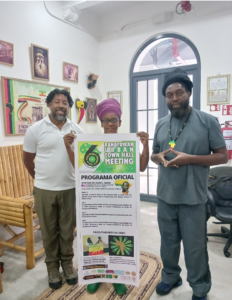 My plane touched down at Tocumen International Airport in Panama on the afternoon of Sunday, May 21, 2023. After I went through the passport check, I went straight to the curbside where I looked for the person who was assigned to meet me at the airport and take me to La Manzana, the conference center and hotel where I was to assist local activists in running Panama’s first Pan-Afrikan Urban Town Hall Meeting. I had decided to travel light so that I could avoid the baggage check line and leave the airport sooner, as well as avoid the possibility of my bags being lost in transit.
My plane touched down at Tocumen International Airport in Panama on the afternoon of Sunday, May 21, 2023. After I went through the passport check, I went straight to the curbside where I looked for the person who was assigned to meet me at the airport and take me to La Manzana, the conference center and hotel where I was to assist local activists in running Panama’s first Pan-Afrikan Urban Town Hall Meeting. I had decided to travel light so that I could avoid the baggage check line and leave the airport sooner, as well as avoid the possibility of my bags being lost in transit.
Despite my having left my home at 2:00 AM and boarded my flight at 6:00 that morning, I was not particularly tired. Perhaps this was a small dose of adrenaline at the adventure I was embarking on. The previous September, I had been here before. The Sixth Region Diaspora Caucus (SRDC) had held its International Summit in Panama City the previous September, so this would be my second visit to the Central American country within a year’s time. This visit would be different, however. Whereas last year the Summit was held at what was then the Wyndham Hotel at Albrook Mall, the largest mall in Panama (and perhaps in all of Central America), this time I would be staying at La Manzana, located smack-dab in the middle of one of Panama City’s depressed neighborhoods. A potentially nerve-wracking experience for a tourist or a vacationer, but I was not here on vacation. I was here to see how the people of Panama’s Afrikan-Descendant Community live, to reach out to them in cooperation with my Afro-Panamanian hosts, and to assist them as they begin the process of building a grassroots Pan-Afrikan organizing committee there in Panama and, by extension, Central America.
The weather in Panama was surprisingly comfortable. I had not noticed until I landed at the airport that I had left my sunglasses in my car in Maryland, but as it turned out, I never needed them because the sky was overcast most of the time I was there. In fact, there would be a torrential downpour Sunday night, despite the fact that the rainy season was supposed to be over. As a result, I never felt uncomfortable for the entirety of my visit, despite the fact that we were close to the equator and this was supposed to be a relatively hot time of the year in Panama.
I was not outside more than a minute or two when I saw a Brother holding a sign that read “Cliff Kuumba”. This was my ride, Bro. Vincent. He helped me load my bags into his car and we enjoyed a pleasant conversation on the way to La Manzana. Once there, I renewed acquaintances with my hosts for the next two days, Ras Bukie Bobby Wright and Empress Yesury Nurse Black Queen Selassie, who I had first met last September at the 2022 SRDC Summit. They were impressed by what SRDC stood for and what we could accomplish on the ground in Panama together and had stated at that time their interest in implementing our organizing model there in Panama. For the last several months, we had been working out the details of how SRDC could assist them in getting started there, and I was designated to be the SRDC Facilitator who would travel to Panama to work with them. I was shown my room where I dropped my bags off before our work began.
Despite my early morning departure from home and the long plane ride that included a stopover in Houston, Texas, I did not stop for a nap upon my arrival in Panama. We pretty much hit the ground running. Bro. Vincent drove us to the area of Rio Abajo where we were treated to The Desfile (pronounced “des-fee-lay”), one of the culminating parades of Panama’s Black Culture Month celebration. Ras Bukie, Empress Yesury Nurse and I unfurled two banners that they had prepared, an Ethiopian flag to celebrate their Rastafari roots and a 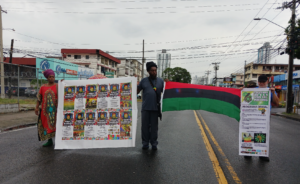 Red, Black and Green flag and, holding all of them together in a chain, we marched three-abreast down the main street and joined the parade. There was music, there were canopies, there were different social organizations and businesses on either side of the road, there were dancers in the street ahead of us, and of course there were the people, all reveling in the celebration of Black culture and dancing to Central American salsa and reggae. Ras Bukie began to interact with the crowds on the sidewalks, occasionally shaking the Red, Black and Green flag, screaming at the top of his voice, “Marcus Garvey! No more brainwash!!” until be became hoarse. We marched with the parade into the evening past sunset.
Red, Black and Green flag and, holding all of them together in a chain, we marched three-abreast down the main street and joined the parade. There was music, there were canopies, there were different social organizations and businesses on either side of the road, there were dancers in the street ahead of us, and of course there were the people, all reveling in the celebration of Black culture and dancing to Central American salsa and reggae. Ras Bukie began to interact with the crowds on the sidewalks, occasionally shaking the Red, Black and Green flag, screaming at the top of his voice, “Marcus Garvey! No more brainwash!!” until be became hoarse. We marched with the parade into the evening past sunset.
After we finally made our way back to La Manzana, Ras Bukie and I walked to a grocery store nearby. As we walked through the darkened streets of the neighborhood, he showed me where some of the rougher areas were. Somehow, despite the fact that one could find whatever type of trouble one wanted in these streets, I was not particularly nervous, though I did remain vigilant. The grocery store was surprisingly large and well-stocked with a variety of produce, canned and dry goods, frozen foods, juices and just about whatever one would expect from a dependable neighborhood market. Outside again, we walked past alleys, homes and tiny closed-in yards where the salsa and reggae music played and people gathered around radios and television sets. One thing I did not notice was the same amount of drug-addled loiterers that I could easily find in a lot of depressed urban centers in the United States. In certain parts of Baltimore City, one can find several people on a single corner leaning over in a state of semi-consciousness as the result of whatever
powerful opioid or narcotic they had recently consumed. I did not see that here. In US inner cities, one was as likely to be approached by a vagrant rat as by a vagrant human. Not so here. After I turned in for the night, from my third-floor room I could hear an occasional gunshot, but even then it was not as intense as what I had come to expect in certain neighborhoods of Baltimore and other depressed urban areas in the United States. Perhaps our timing was perfect and we were outside at the one time when all that was not happening, but despite the daily struggle these people faced, it seemed their response to hardship was different. Still, the struggle is real there, and the hopelessness felt by some of the people would come out in our Monday and Tuesday sessions.
The original plan was to introduce the people to SRDC and our Town Hall Process, hear from some of our international allies over the virtual connection, and possibly to set up a Council of Elders (wise community Elders to whom the people and activists can go for advice, guidance, correction and the mediation of disputes), nominate possible Community Representatives (people who live in the community who could speak for them at national and international meetings because the community chose them to do so) and begin to formulate a local Pan-Afrikan Agenda (a list of the issues that are important to the people and some of the ideas and aspirations of the community). I knew going in that we probably would not accomplish all of those goals; after all, in Maryland in 2017, it took us five (5) Town Hall Meetings to accomplish most (though not quite all) of that plan (we re-introduced SRDC, we re-established and updated our Pan Afrikan Agenda and nominated what would become the current Maryland Council of Elders), and we had been running Town Hall Meetings in Baltimore once or twice a year since 2007, so we had ten years of experience by that time. This would be Panama’s very first such meeting. In the end, though we didn’t accomplish all that we had originally set out to do, we did something better: we got to know the people of Panama just a little, we got an idea of what they go through every day, and we met with some truly committed activists and organizers, chief among them Ras Bukie and Empress Yesury Nurse.
Monday morning was the first of two days of Town Hall meetings that were planned. The meeting hall at La Manzana was nicely appointed, though the brick-and-metal design meant the hall was susceptible to acoustical issues and there were technical problems that prevented us from fully establishing a good connection over the Internet for the virtual part of the meeting. Our day officially began with a meeting in La Manzana’s office conference room that included myself, Ras Bukie, Empress Yesury Nurse, Baba Francisco Knight of an organization called Wake Up, Baba Melvin Brown of the Afro-Panamanian Foundation for Sustainability and the State of the African Diaspora, and the La Manzana management team, who welcomed us and expressed their desire to increase their outreach into the surrounding community. The attendance at Monday’s session in the meeting hall was light, with only a few people attending, but the session was enlightening nonetheless. We met a young lady whose family of five were all working a variety of odd jobs to survive except for one son who was currently incarcerated. This was my initial introduction to the daily struggle that the Afrikan Descendant community of Panama City often had to face.
Tuesday’s session was better attended. Monday night, Empress Yesury Nurse had ventured out into the surrounding community, as she had also done late Sunday, to talk to the people and drum up support for the Town Hall. As a result, there was a larger crowd for the Tuesday session, but still small enough that we could hold our session without needing all the audio-visual support we had arranged. This turned out to be a good thing in several ways, because it allowed us to hold a more intimate meeting and to hear from all of the attendees in detail about what they deal with on a daily basis. All of the attendees stated what we have come to expect in working-class and struggling communities: their connection to their ancestral home, Afrika, is weak because they are not taught about their heritage in the schools, every day is a struggle to survive and make a life for their families, and they feel cut off from people of Afrikan descent elsewhere in the world. One grandmother of 18, after some encouragement from Ras Bukie, finally let down her emotional armor and began to open up. Before long, she was recounting the daily struggle of herself and her family between heaving sobs. One of her children was also incarcerated, she often felt alone with no help in sight, and simple survival was a struggle. Despite the work of the international organizations that claim to speak for our people in depressed communities, organizations such as the United Nations Permanent Forum of People of African Descent (PFPAD), which would meet in New York City one week later, the State of the African Diaspora (SOAD), and my own organization, SRDC, none of that has as yet had any impact on these people here in Panama City. They knew nothing of these organizations, and for the most part, these organizations knew nothing about them. These people are isolated in the urban prisons to which they have been consigned, with no clear escape in sight. This experience would influence how I look at grassroots Pan-Afrikan organizing for the foreseeable future.
That Tuesday session also set the stage for the development of an organizing committee there in Panama City, perhaps centered on La Manzana, where Ras Bukie and Empress Yesury Nurse have an office. As adherents of the Rastafari and strong Garveyites, they share a deep commitment to those principles but also recognize the necessity of organizing all of Panama’s Afrikan-Descendant community, be they Garveyite, Rastafari or not. As such, they have contacted Baba Melvin Brown, Baba Francisco Knight and others in an effort to build a truly inclusive organizing committee for the entire Afro-Panamanian community. The group that met on Tuesday expressed an interest in moving to the next steps of building a Community Council of Elders, solidifying the organizing committee and building for future Town Hall Meetings that will be able to draw more and more members of the community to build a Pan-Afrikan Agenda and elect Representatives from among them who would be able to speak for them at national and international conferences and assemblies.
My hosts for the three days, Ras Bukie and Empress Yesury Nurse, were extremely enthusiastic to hold this weekend session and were deeply committed to the success of the meetings. They went out and engaged with the local community. They created banners and promoted this session heavily. They contacted other organizations and activists, some of whom responded and some didn’t. Organizing a community, especially one that has been marginalized and forgotten for so long, is hard work, and they were certainly up to the task. In talking and working with them over those three days, I could see that they had truly poured themselves into this work. As I see it, they have earned the right to assume the status of Panama’s SRDC Facilitators. (And, as of Sunday, June 11, 2023, they are SRDC’s official Facilitators for Panama and are, as a result, Members of the SRDC Secretariat.)
Wednesday afternoon came, and it was time for Bro. Vincent to take me back to Tocumen International Airport for my return flights, from Panama to Miami and, after a five-hour layover, to Thurgood Marshall Baltimore Washington International Airport and home. Bro. Vincent and I had another good conversation as we drove to the airport, and on the way I once again got to see a bit of how the “other half” lives in Panama City: the skyscrapers of the city’s Gulf of Panama skyline, the restaurants, the gleaming hotels, the seaside parks filled with walkers, runners and bicyclists, and the distant docks where the “upper crust” parked their boats. We saw some of the communities of Indigenous and Afrikan-Descendant fishermen who have been resisting efforts by land speculators to buy their ramshackle homes on the cheap so they could gentrify them as they were already busy gentrifying parts of the neighborhood around La Manzana. And while I had been struck by the differences in how the poor of Panama City dealt with their trauma as opposed to many cities in the US, this much looked familiar: the encroachment of big corporate developers into depressed areas as they sought to pick the bones of the community so they could take the land under their feet and rake in bug bucks with yet another “urban renewal” gentrification scheme, displacing the already-disadvantaged yet again in the pursuit of profit, without a care in the world about what would become of the people they displaced, because they consider them to be voiceless and easily thrown away. But these are the people whose voices desperately need to be heard. The ones who are marginalized, the ones who are continually exploited and then shoved aside, the ones for whom every day is a never-ending struggle. These, as well as or perhaps more than the Black middle class and the civil rights leaders and the international activists, are the ones we must reach. These are the ones whose voice needs to be lifted up and amplified so the world will hear them, must hear them, cannot escape hearing them. This is what we hope to accomplish as we continue with our efforts to Organize The Diaspora. The Pan Afrikan Town Hall is the first important step to achieving that goal, and one that we in SRDC must continue to pursue if we are to make Pan-Afrikanism real and not just some cute phrase to be uttered when we want to stake our claim as Champions of the People.
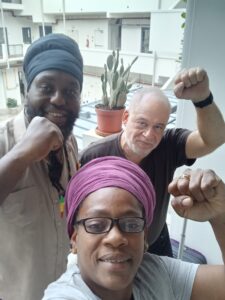

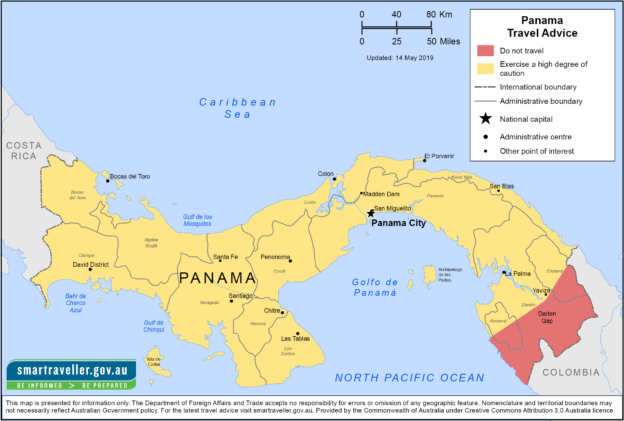
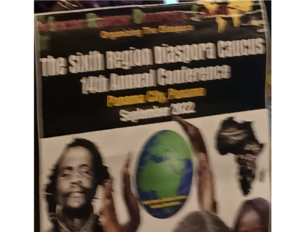 The 2022 SRDC Summit was held from Thursday, September 22 through Sunday, September 25, 2022 in Panama City, Panama. Since SRDC does not yet have an organization in Panama, this amounted to “virgin territory” for our organizing efforts. A number of the hoped-for attendees were not able to secure travel visas to attend the Summit in time, but some of them were afforded the opportunity to connect to the Summit virtually via Zoom. Activists from the Virgin Islands, Costa Rica, The Netherlands, Liberia, the United States and, of course, the host country of Panama were in attendance, with others from the United States, Tanzania, Ghana, Guadeloupe and other locations connecting virtually.
The 2022 SRDC Summit was held from Thursday, September 22 through Sunday, September 25, 2022 in Panama City, Panama. Since SRDC does not yet have an organization in Panama, this amounted to “virgin territory” for our organizing efforts. A number of the hoped-for attendees were not able to secure travel visas to attend the Summit in time, but some of them were afforded the opportunity to connect to the Summit virtually via Zoom. Activists from the Virgin Islands, Costa Rica, The Netherlands, Liberia, the United States and, of course, the host country of Panama were in attendance, with others from the United States, Tanzania, Ghana, Guadeloupe and other locations connecting virtually.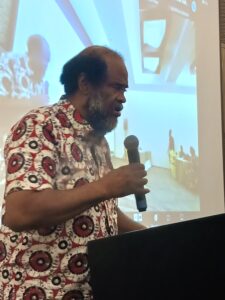
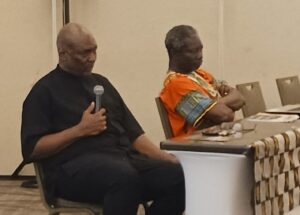
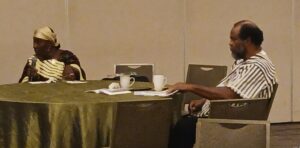
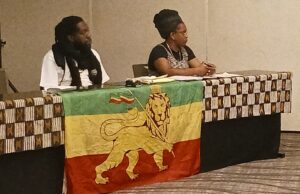
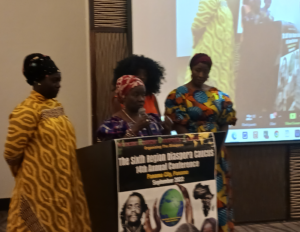
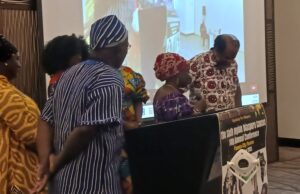
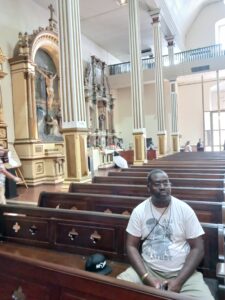
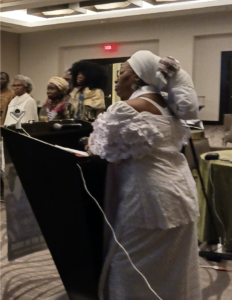
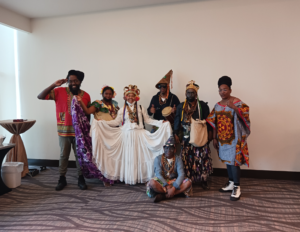
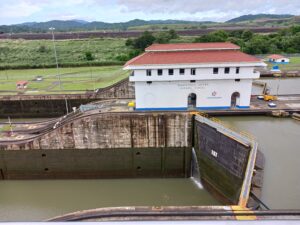
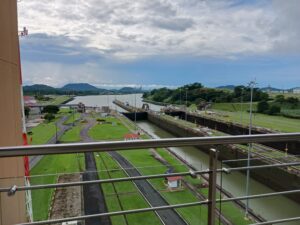
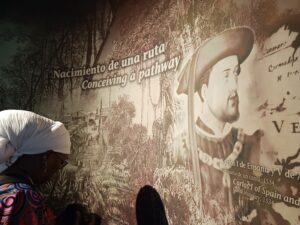
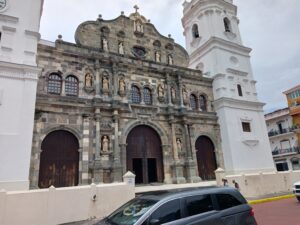
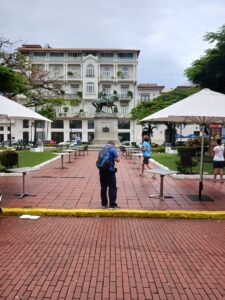
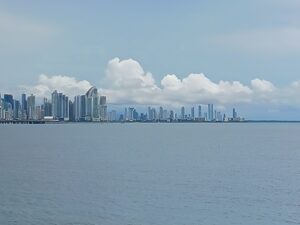
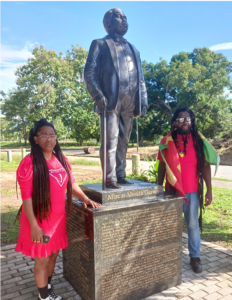
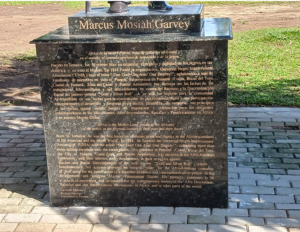
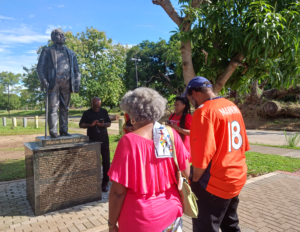
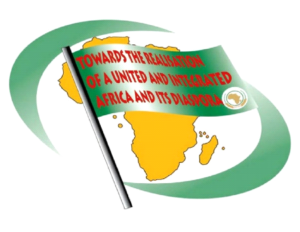 The Global Pan African Roots-Synergy Roundtable was held in Addis Ababa, Ethiopia from May 23-27, 2022. The objective of the Global Pan African Roots-Synergy Roundtable was to bring to a resolution several of the issues that have delayed the unification of the Global Pan-Afrikan Diaspora and the representation of our collective voice on the World Stage.
The Global Pan African Roots-Synergy Roundtable was held in Addis Ababa, Ethiopia from May 23-27, 2022. The objective of the Global Pan African Roots-Synergy Roundtable was to bring to a resolution several of the issues that have delayed the unification of the Global Pan-Afrikan Diaspora and the representation of our collective voice on the World Stage.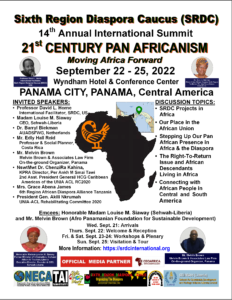 The 14th Annual International Summit of the Sixth Region Diaspora Caucus (SRDC) will be held from September 22 – 25 in Panama City, Panama.
The 14th Annual International Summit of the Sixth Region Diaspora Caucus (SRDC) will be held from September 22 – 25 in Panama City, Panama.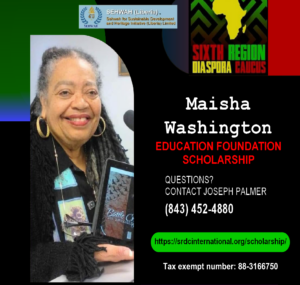 Sehwah-Liberia, Inc. and the Sixth Region Diaspora Caucus (SRDC) are announcing the
Sehwah-Liberia, Inc. and the Sixth Region Diaspora Caucus (SRDC) are announcing the 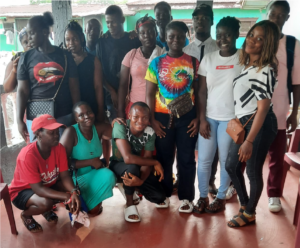
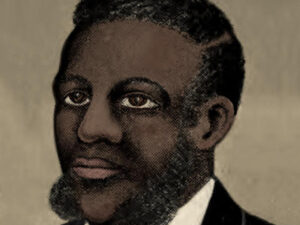

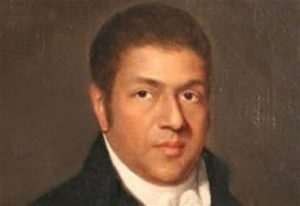
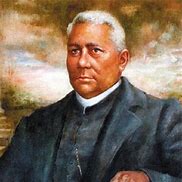
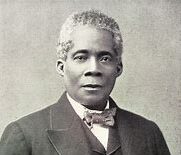
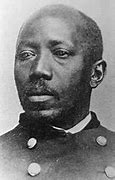

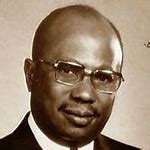
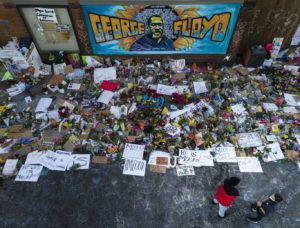 One year after the death of George Floyd under the knee of Minneapolis police officer Derek Chauvin, author and academic Caroline Randall Williams read the statement of Darnella Frazier, the young woman whose videotape of Chauvin killing Floyd led to the officer’s conviction on all three counts against him. Ms. Williams read the statement at the behest of MSNBC host Lawrence O’Donnell since Ms. Frazier, who recently turned 18, does not grant interviews or make public statements after the trauma of witnessing Floyd’s death and then testifying about it in Chauvin’s trial. One year later, and the George Floyd Justice In Policing Act of 2020 (HR 7120) is still being debated in the Senate as right-wing politicians seek to water it down or block it completely.
One year after the death of George Floyd under the knee of Minneapolis police officer Derek Chauvin, author and academic Caroline Randall Williams read the statement of Darnella Frazier, the young woman whose videotape of Chauvin killing Floyd led to the officer’s conviction on all three counts against him. Ms. Williams read the statement at the behest of MSNBC host Lawrence O’Donnell since Ms. Frazier, who recently turned 18, does not grant interviews or make public statements after the trauma of witnessing Floyd’s death and then testifying about it in Chauvin’s trial. One year later, and the George Floyd Justice In Policing Act of 2020 (HR 7120) is still being debated in the Senate as right-wing politicians seek to water it down or block it completely.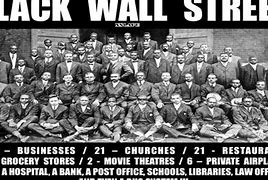 The historic irony is that this also comes as we approach the 100-year anniversary of the Tulsa Race Massacre, in which the thriving Black community of Greenwood, Oklahoma, also known as “Black Wall Street”, was burned to the ground in a violent White race riot on May 31 and June 1, 1921 that killed up to 300 Black people, sparked by a trumped-up story that a young Black teenager had bumped into a young White girl on an elevator and was accused of assault. Close to 10,000 Black citizens were left homeless and thousands were taken into custody and detained.
The historic irony is that this also comes as we approach the 100-year anniversary of the Tulsa Race Massacre, in which the thriving Black community of Greenwood, Oklahoma, also known as “Black Wall Street”, was burned to the ground in a violent White race riot on May 31 and June 1, 1921 that killed up to 300 Black people, sparked by a trumped-up story that a young Black teenager had bumped into a young White girl on an elevator and was accused of assault. Close to 10,000 Black citizens were left homeless and thousands were taken into custody and detained. 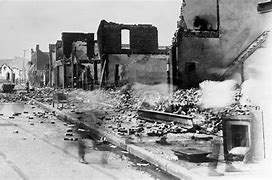 (
(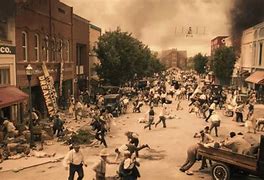 Rosewood Massacre of 1923 (
Rosewood Massacre of 1923 (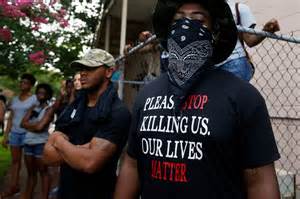 again, this is not a racist country. Never mind all the evidence to the contrary. Never mind that the United States was founded on the extermination of the Indigenous population and built on the backbreaking unpaid labor of kidnapped and enslaved Afrikans. Never mind the vicious, genocidal race riots from Wilmington to Rosewood to Greenwood that were never prosecuted, the victims never made whole and the history buried and denied to this day. Never mind the internment camps for Asian Americans after the conflict with Japan in World War II. Never mind the country’s history of ethnic, racial and political repression, from the Red Scare to COINTELPRO, that disproportionately targeted Black and Red communities. Never mind the repressive policies from several US presidents that increased the misery in the poor neighborhoods where many people of Afrikan Descent live, and the draconian law enforcement and judicial practices that severely punished transgressions by those who live there. Never mind the statistics on mass incarceration, political imprisonment and extrajudicial murders by police that continue even as you read this.
again, this is not a racist country. Never mind all the evidence to the contrary. Never mind that the United States was founded on the extermination of the Indigenous population and built on the backbreaking unpaid labor of kidnapped and enslaved Afrikans. Never mind the vicious, genocidal race riots from Wilmington to Rosewood to Greenwood that were never prosecuted, the victims never made whole and the history buried and denied to this day. Never mind the internment camps for Asian Americans after the conflict with Japan in World War II. Never mind the country’s history of ethnic, racial and political repression, from the Red Scare to COINTELPRO, that disproportionately targeted Black and Red communities. Never mind the repressive policies from several US presidents that increased the misery in the poor neighborhoods where many people of Afrikan Descent live, and the draconian law enforcement and judicial practices that severely punished transgressions by those who live there. Never mind the statistics on mass incarceration, political imprisonment and extrajudicial murders by police that continue even as you read this. 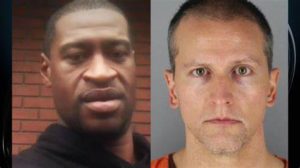 understand why George Floyd has become such a symbol, not because he was a hero but because, as a victim, he has symbolized, once again, the fine line that so many of our Brothers and Sisters must walk when they are forced to live in the margins of existence and are met by the keepers of “law and order”. To be sure, the person we are answering suffered tragedy of their own, and we feel sympathy for their suffering. But the Black Experience in America is one that apparently too many still cannot fathom, hence the old 1990’s saying, “It’s a Black Thing, You
understand why George Floyd has become such a symbol, not because he was a hero but because, as a victim, he has symbolized, once again, the fine line that so many of our Brothers and Sisters must walk when they are forced to live in the margins of existence and are met by the keepers of “law and order”. To be sure, the person we are answering suffered tragedy of their own, and we feel sympathy for their suffering. But the Black Experience in America is one that apparently too many still cannot fathom, hence the old 1990’s saying, “It’s a Black Thing, You 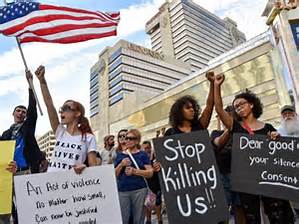 Wouldn’t Understand”. So many of this country’s White citizens (and some Black ones) have bought the right-wing’s rhetoric about how discussing and resisting police brutality in particular and racism in general is divisive, that we shouldn’t even see color, that the Movement for Black Lives and other anti-police brutality movements (whatever you think of their effectiveness) amount to “reverse racism”, and that the calls to “defund the police” are simply taking things too far. Thus, it was necessary to offer our analysis, from our particular point of view, of What It Is Like To Be Black In America.
Wouldn’t Understand”. So many of this country’s White citizens (and some Black ones) have bought the right-wing’s rhetoric about how discussing and resisting police brutality in particular and racism in general is divisive, that we shouldn’t even see color, that the Movement for Black Lives and other anti-police brutality movements (whatever you think of their effectiveness) amount to “reverse racism”, and that the calls to “defund the police” are simply taking things too far. Thus, it was necessary to offer our analysis, from our particular point of view, of What It Is Like To Be Black In America.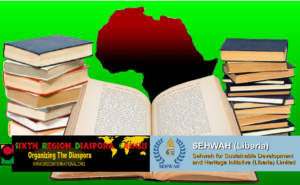
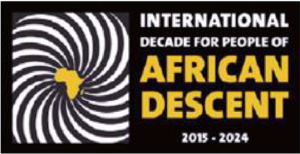
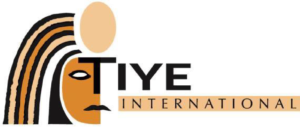 STATEMENT DURING THE CONSULTATIVE SESSION
STATEMENT DURING THE CONSULTATIVE SESSION Making Consultations Count: What We Need from the Permanent Forum on People of African Descent
Making Consultations Count: What We Need from the Permanent Forum on People of African Descent